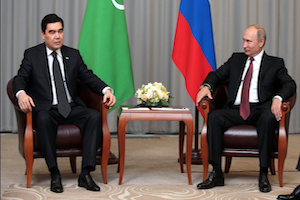Energy Crisis Places Turkmenistan in the Geopolitical Spotlight
By Natalia Konarzewska
March 10, 2023
Isolated but natural gas-rich Turkmenistan has recently become a subject of geopolitical competition owing to the energy crisis in Europe and Western energy sanctions imposed on Russia as a consequence of its invasion of Ukraine. During a mid-December 2022 tripartite meeting in Turkmenistan between the presidents of Turkmenistan, Azerbaijan and Turkey, Turkish president Recep Tayyip Erdogan sought to make the case for Ashgabat to join the Organization of Turkic States and to start exporting its gas via the Caspian Sea and Turkey to Europe. Turkmenistan, however, prefers to remain neutral and maintain positive relations with Moscow, which would be at risk if the country decided to export its gas to Turkey bypassing Russia. Moreover, Russia’s plans to divert its trade and gas export routes towards Asian markets potentially offers a prominent role for Turkmenistan.
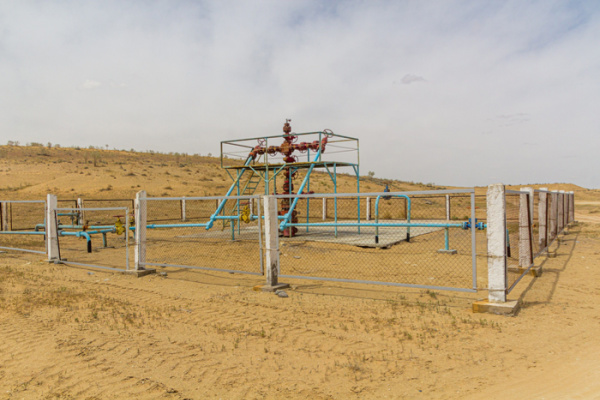
First Azerbaijani Gas Reaches Albania Amid COVID-19
By Esmira Jafarova
July 14, 2020, the CACI Analyst
The first Azerbaijani gas via the Trans Adriatic Pipeline (TAP) reached Albania at the end of May 2020. This marked the first delivery of natural gas from Azerbaijan’s Shah-Deniz -II field in the Caspian Sea to Europe via the multimillion megaproject the Southern Gas Corridor (SGC). Despite the COVID-19 induced pandemics and global lockdowns, this is an important achievement testifying to the successful implementation of works in all four segments of the Southern Gas Corridor, including its final portion, TAP. The SGC is set to become fully operational in 2020 and it seems that Italy will also receive its earmarked portion of natural gas quite soon.
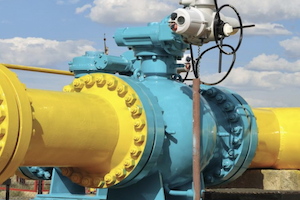
Armenia's Gas Dispute with Russia
By Natalia Konarzewska
April 29, 2019, the CACI Analyst
In March 2019, two high-ranking Armenian officials revealed that Armenia and Russia have not yet reached an agreement on the price of natural gas. Negotiations on gas tariffs are ongoing and remain high on the bilateral agenda. In late December 2018, Gazprom announced that it will raise gas prices for Armenia in 2019. Subsequently, Armenia has sought to reduce the price for Russian supply, with little success. In a move to improve Armenia’s negotiating position vis-a-vis Russia, Yerevan started to explore the possibility of importing gas from Iran. The gas row comes amid heightened tensions in post-revolutionary Armenia’s relations with Russia. Moscow has traditionally used its gas deliveries as a lever in bilateral relations and now routinely expresses its distrust in Nikol Pashinyan’s government.
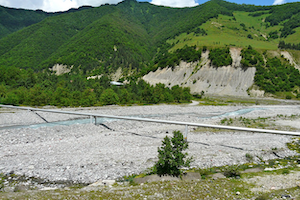
Kadyrov's Intensifying conflict with Gazprom
By Huseyn Aliyev
April 3, 2019, the CACI Analyst
On December 20, 2018, Grozny city court ruled that the regional branch of Gazprom, Mezhregiongaz, should write off most of the republic’s gas debt. The court’s unprecedented ruling has caused four other indebted federal Russian regions to file similar appeals to their regional courts. The Chechen Prosecutor’s Office explained that it filed the appeal to the court due to concern over the threat of popular protests. Chechnya’s leader Ramzan Kadyrov insisted that Chechnya’s gas debts are due to Gazprom’s long-term mismanagement and miscalculations. While the Federal Attorney Office is currently investigating the issue, neither Kadyrov nor Gazprom have made any concessions. Since the start of scandal, the Kremlin has kept its distance from both sides.
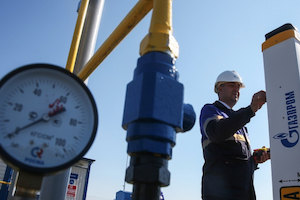
Turkmenistan's Gas Export Dilemma
By Dmitry Shlapentokh
November 15, 2017, the CACI Analyst
At first glance, Turkmenistan’s decision in January 2017 to stop selling gas to Iran was a minor episode in the context of an otherwise friendly relationship between Tehran and Ashgabat, as indicated by several meetings of high Iranian and Turkmen officials following the clash over gas deliveries. However, the tension with Iran could imply serious problems for Turkmenistan and lead to increasing dependence on Beijing, regardless of all Ashgabat’s maneuvering. Turkmenistan’s fallout with Iran also limits the ability of both the West and the South to access Central Asian gas and facilitates an increasing Chinese influence in this part of Eurasia, providing additional opportunities for China’s resurrection of the Silk Road.
